Articles and Research
All our work is based on research and decades of experience with reading.
A Model for Celebrating and Cementing Reading Fluency Schoolwide
Meredith guest-blogged for Tim Rasinski, fluency researcher and past president of the IRA about a model for schoolwide fluency that celebrated children and elevated public speaking and performance at the Family Academy while ensuring every second grader achieved grade-level fluency.
If We Want to Accelerate Student Learning, We Need to Re-design the School Day
This short piece challenges existing assumptions about how we organize the school day, particularly for students after elementary school. Our models were designed for efficiency and mediocre results for all but a lucky few. It is time to redesign around what works to lift and enliven every students' experience.
College Board Suite of Classroom Practices for Secondary Teachers
Published in the summer of 2020, and with an eye on just and equitable literacy access for every student, the chapters represent updated research on their topics.
Chapter one addresses Text Complexity and its importance (written by David)
Chapter two addresses Text Evidence, Close Reading and Source Analysis (written by Meredith)
Chapter three addresses Vocabulary and Knowledge Acquisition and their roles in reading comprehension (written by David).
Building a Research Based Reading Program for Upper Elementary Students (Liben and Liben)
This article, from Phi Delta Kappan in the Fall of 2004, continues the story of The Family Academy in Harlem and the work done to develop an effective reading program for every student.
Framework for Close Reading (D. Liben)
Shows how to design a close reading instructed lesson from text selection through to developing a culminating assignment focused on an essential question.
Guide to Creating Text-Dependent Questions (Liben and Liben)
Step-by-step instructions for developing excellent questions that focus on the essential parts of the text and help students develop a deep understanding of what they are reading.
Measures of Text Complexity (Nelson, Perfetti, Liben and Liben)
This is the full research study that established the validity and reliability of text measures so CCSS Reading Standard Ten could become the powerful driver for equity it is, providing the means for grade level complex text to be known and available to all students.
Research on Text Complexity (Liben and Liben)
Published as a supplement to the CCSS ELA Appendices, this is the educator version of the full research report findings above and is the definitive guide to CCSS aligned text complexity measures.
Our Journey to Reading Success (Liben and Liben)
This article, from Educational Leadership March 2004, tells the story of the founding of The Family Academy and our initial failure to help our students learn to read. It traces our discovery of solid reading research and the development of a robust, successful set of early reading practices.
Placing Text at the Center of the Standards-Aligned ELA Classroom(M. Liben and S. Pimentel)
This paper intends to articulate the vision for what an evidence-based model for text-centered instruction could look like (that includes strategies instruction in the way that research suggests is productive), and to make the case for interim assessment reporting categories that would help drive that instruction.
The Common Core Standards: Starting Now (Liben and Liben)
Published when the CCSS were brand new, this offers practical advice that is still applicable. The Common Core State Standards require instructional changes at all grade levels. There are concrete, practical, and specific actions that districts and schools can take immediately, even if they still have materials that are not aligned. In this article, we share strategies and resources related to English language arts and literacy standards
The Progression of Reading Comprehension (D. Liben and D. Pearson)
Co-written by David Liben and David Pearson, this article explores what it means to be a strong reader who understands what has been read and what strong readers know that weaker readers do not when they each encounter sections of text they initially do not understand. It introduces and explains the important concept of having a "Standard of Coherence" as a factor in successful comprehending.
Vocabulary and the Common Core (D. Liben)
Talks about the essential role words play in the CCSS for ELA, and the research base that connects word awareness and reading comprehension.
Which Words Do I Teach and How (D. Liben)
Addresses the question of how can we determine which words are most important, which merit relatively more time and attention, and which less. In both cases, offers guidance what is the most effective and efficient ways to approach teaching vocabulary.
Reading As Liberation (M. Liben & S. Pimentel)
Published in the summer of 2021, this examines what equitable literacy instruction and personalization look like and what the relevant research base is for promoting access to literacy and providing content-linked personalization to facilitate access and acceleration. Central to the paper is a set of five research syntheses assembled by David Liben that together make a compelling case for the interconnectivity of all aspects of reading.

